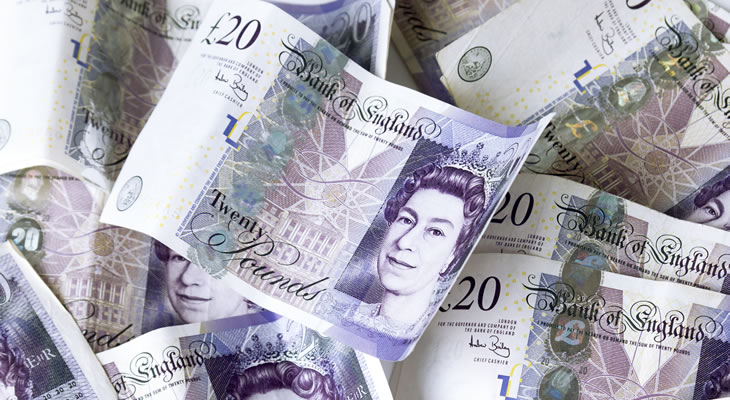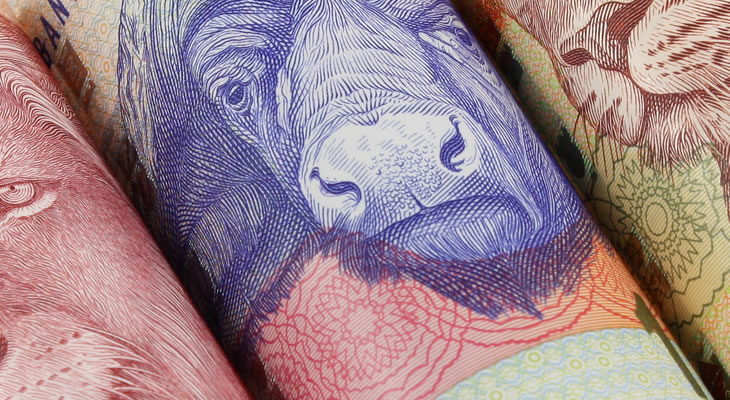- Sterling unsettled overall by recent pessimism over UK Referendum
- South African Rand dives against peers in exchange rates today
- Global emerging markets face troubling times
- UK PMIs and ZA banking PMI due this week
With the week beginning proper for the Pound (GBP) today, after Monday’s bank holiday, the UK currency has been uncertain against its peers. Sizable gains have been recorded, although these may be a symptom of overseas weakness rather than a sign of domestic strength.
The South African Rand (ZAR) has been in a state of abject decline against its rivals, owing to continued political unrest and a general state of concern rippling out among global commodity currencies.
UK Economic News: Historic Contraction of Manufacturing PMI comes along with Growing ‘Brexit’ Concerns
The Pound (GBP) has managed to record a number of gains against its peers today, which include 0.7% against the New Zealand Dollar (GBP/NZD), 1% against the Mexican Peso (GBP/MXN), 1.5% against the South African Rand (GBP/ZAR) and 1.8% against the Russian Ruble (GBP/RUB). These advances have been tempered, however, by losses of -0.7% against the Euro (GBP/EUR) and -0.9% against the Japanese Yen (GBP/JPY).
Positive news has been somewhat hard to come by recently, which is what makes the most recent gains recorded for the Pound so irregular. One potential positive angle has come from the UK steel industry, where Liberty House has voiced its intention to make a formal bid on Tata Steel’s UK operations, a move that would potentially save thousands of jobs and keep a vital lifeline open for towns dependent on the steel industry for their livelihoods.
Less supportively, the morning brought the announcement of the UK manufacturing PMI results for April, which showed a contraction from 50.7 points to 49.2; the first such outcome in three years.
In response to the news, Rob Dobson, a Senior Markit Economist, said that:
‘Manufacturing production is now falling at a quarterly pace of around 1% and will likely act as a drag on the economy again during the second quarter and putting greater pressure on the service sector to sustain GDP growth’.

South African Rand (ZAR) makes Negative Movement on Zuma Corruption Charges
The Rand (ZAR) has been a poor prospect so far this week, having fallen against a majority of its usual peers (GBP, EUR, USD).
One source of devaluation for the Rand has been political instability around President Jacob Zuma, who remains under the shadow of innumerable corruption charges and possible death threats from an opposition party.
Regarding the President’s future fate in terms of the law, Constitutional Law scholar Pierre de Vos has stated that:
‘There is a legally valid decision by the NPA to charge President Zuma for various criminal offences. The NPA is now legally obliged to indict the President – unless it appeals the judgment’.
Another factor weakening the Rand has been the recent interest rate cut made by the Reserve Bank of Australia (RBA); this has devalued the Australian Dollar (AUD) and by extension lessened the chances of high-volume trade between the two commodity-linked nations.
GBP, ZAR Future Forecast: UK and ZA PMIs Ahead
The next ecostats likely to affect the GBP/ZAR pairing will come from the UK, in the form of tomorrow morning’s pessimistically predicted construction PMI outcome for April.
Following on from this on Thursday morning will be the South African standard bank PMI for April (expected to fall) and the similarly negatively-forecast UK composite and services PMIs for the same month.
Current GBP, ZAR Exchange Rates
The Pound Sterling to South African Rand (GBP/ZAR) exchange rate was trending in the region of 21.2500 and the South African Rand to Pound Sterling (ZAR/GBP) exchange rate was trending in the region of 0.0470 today.


Comments are closed.